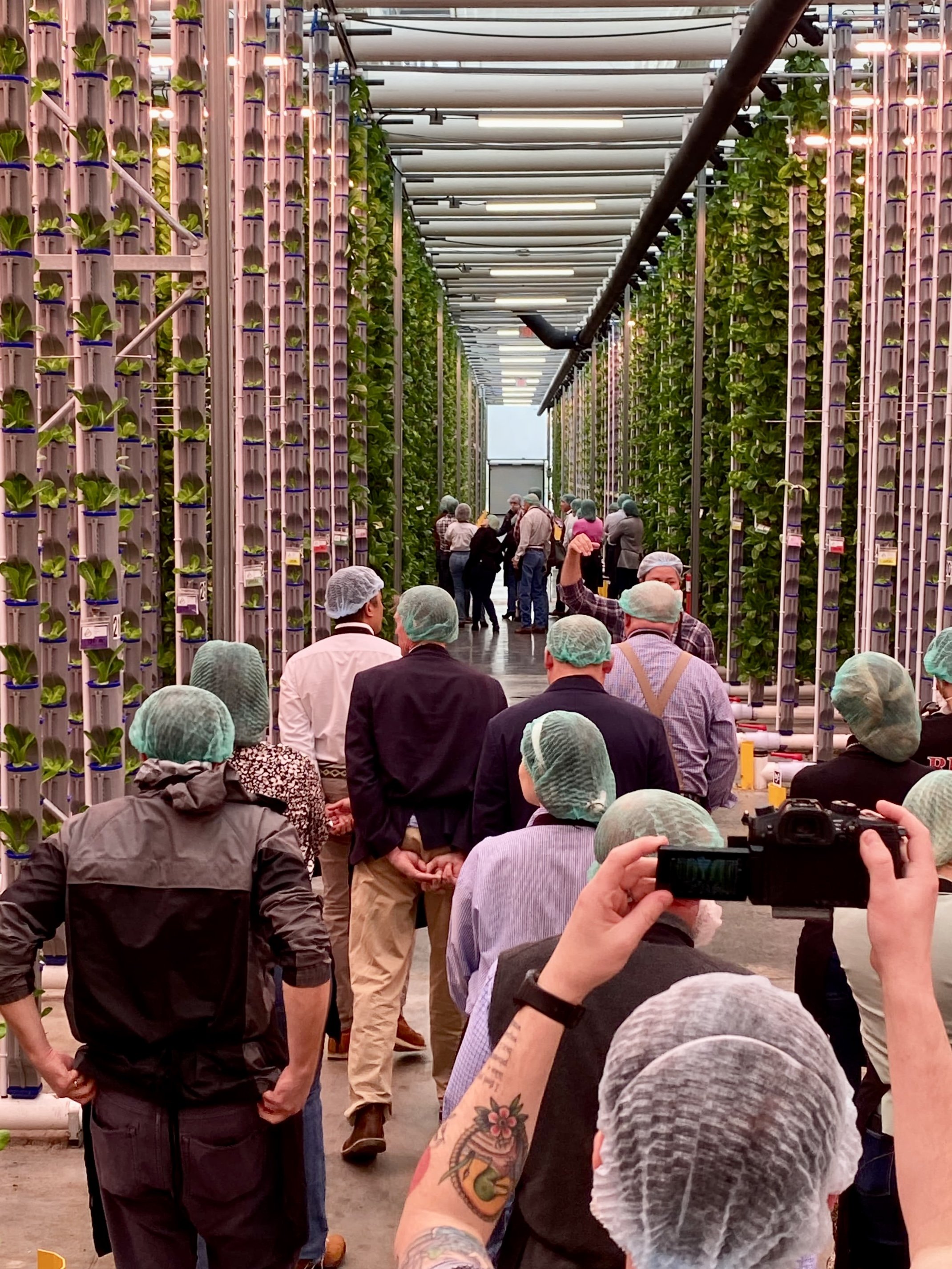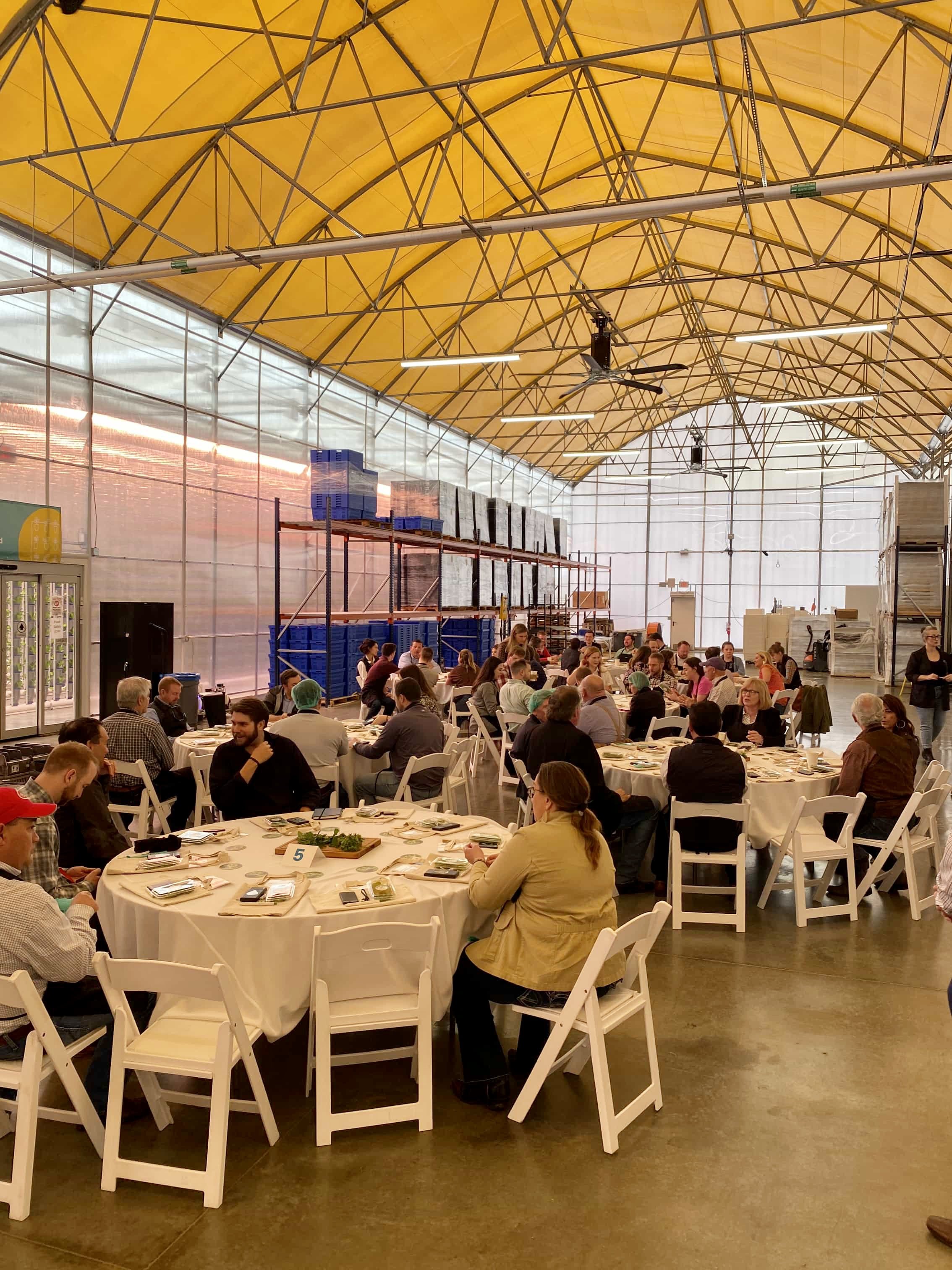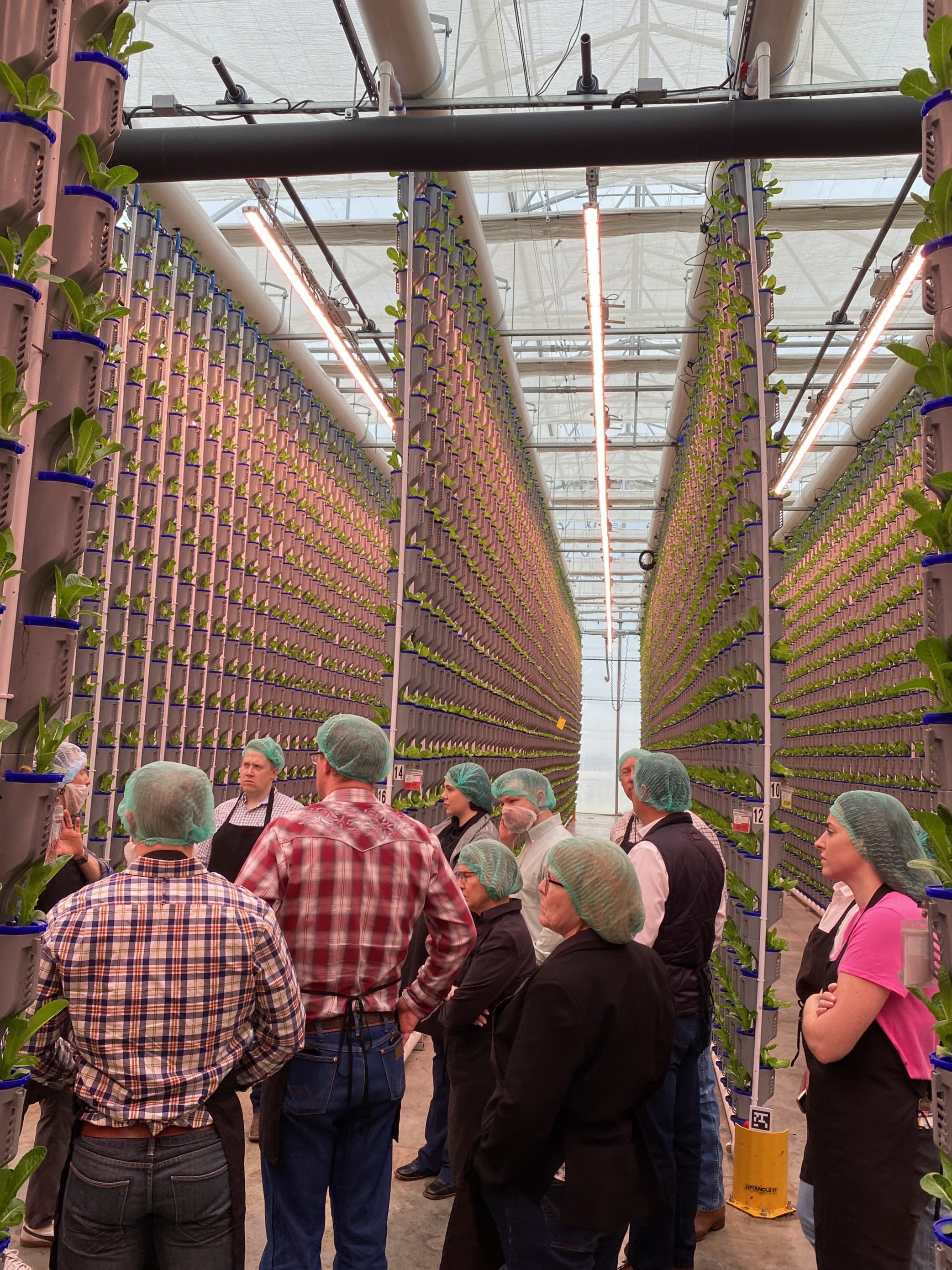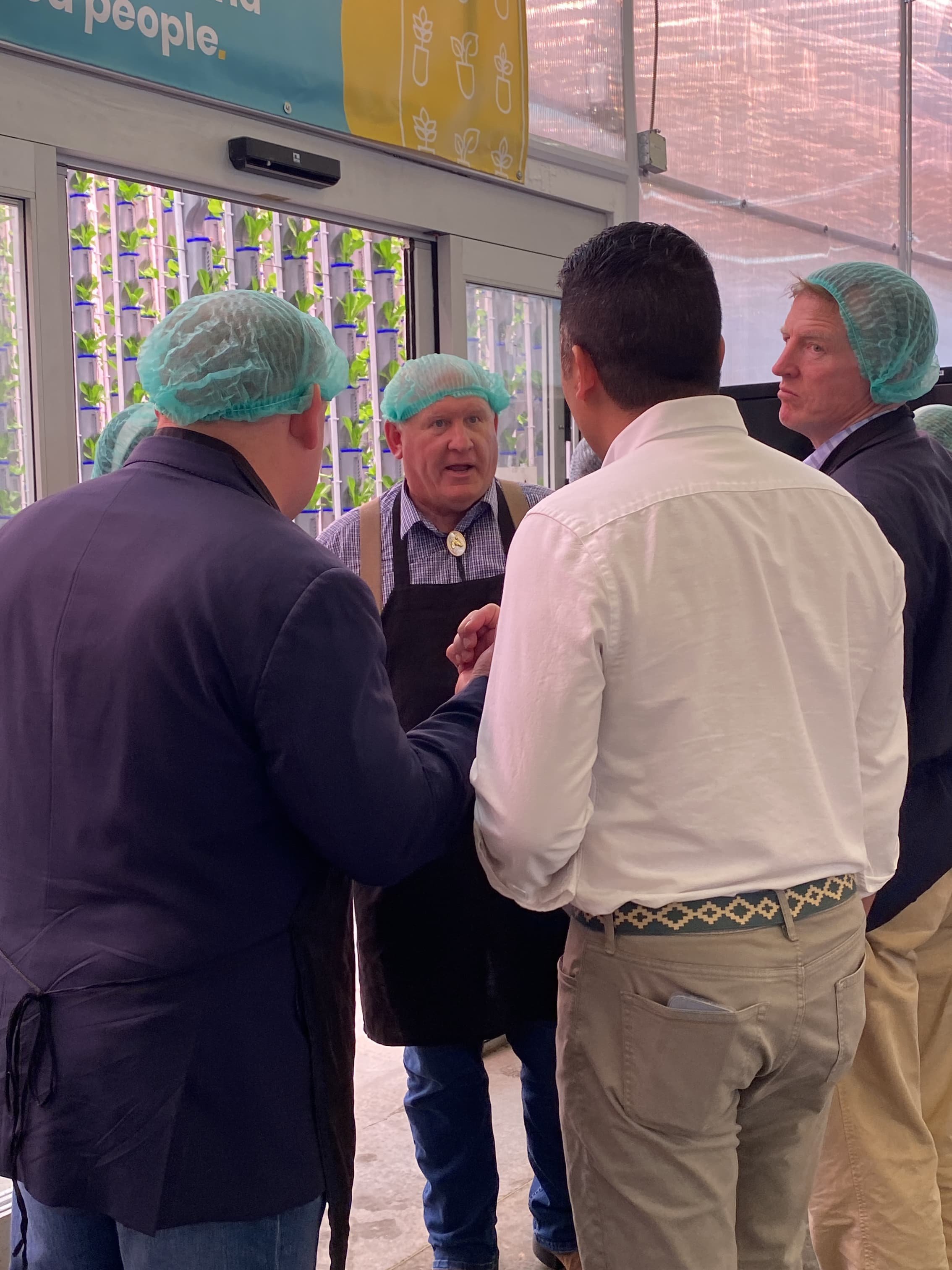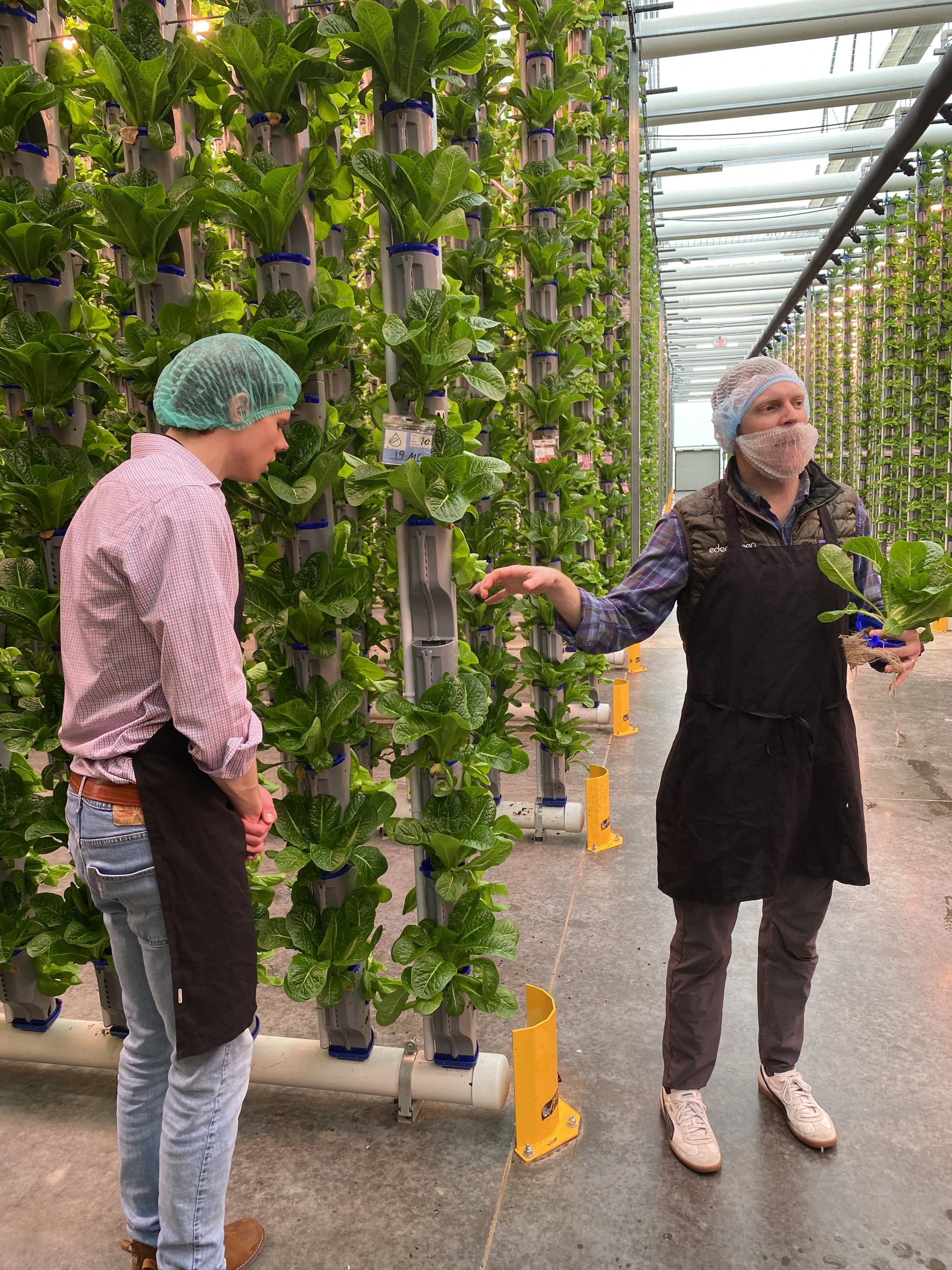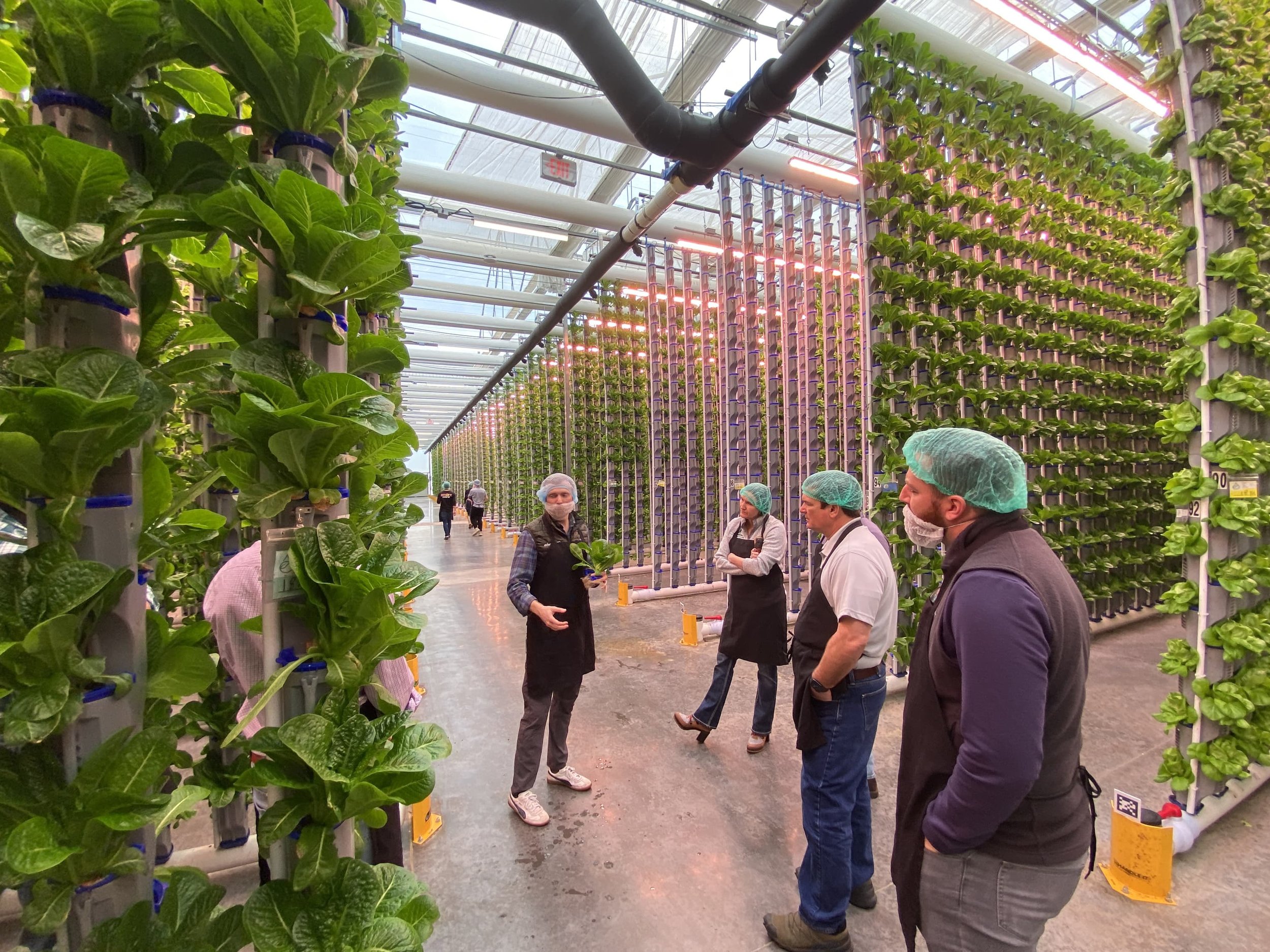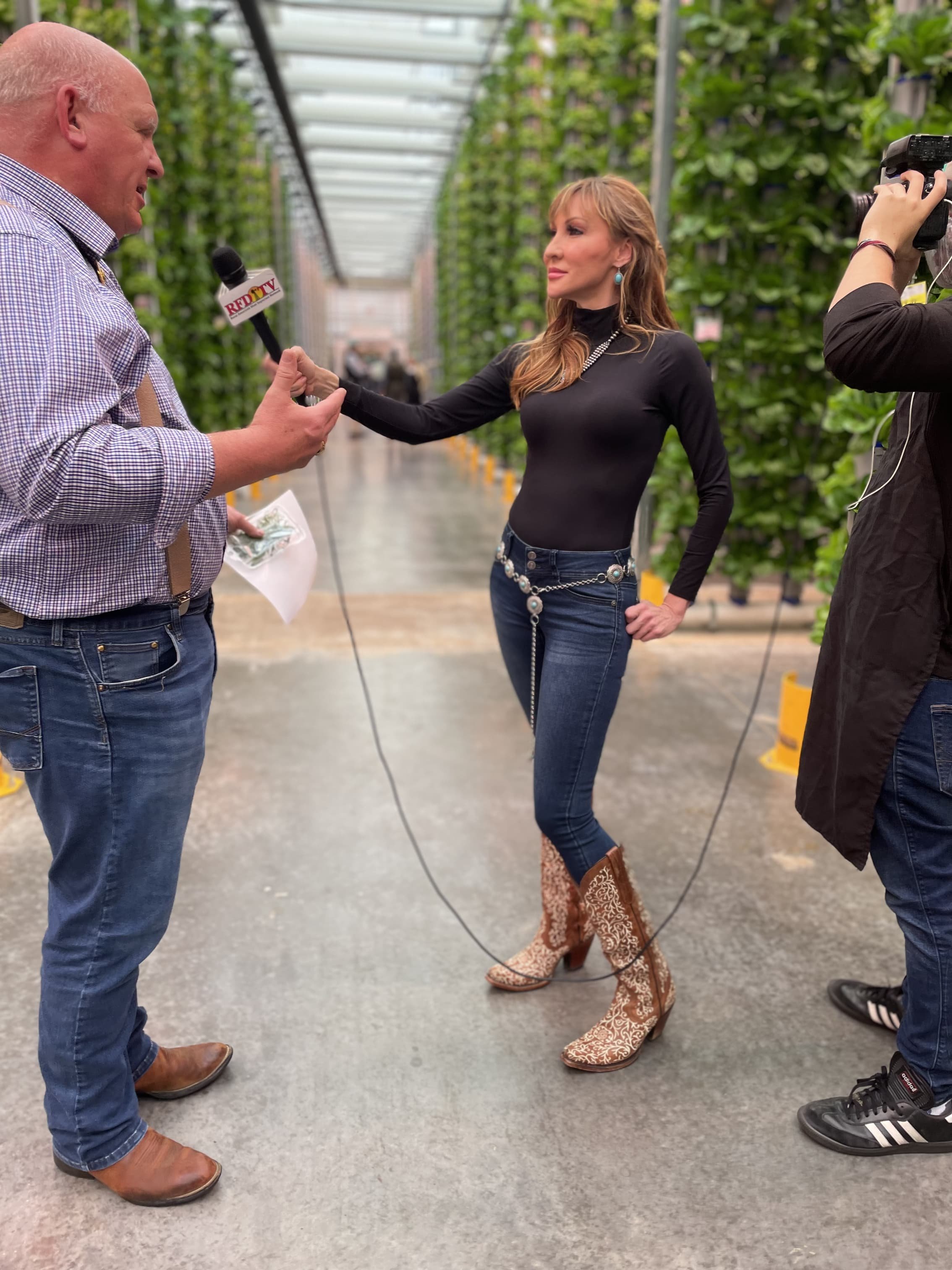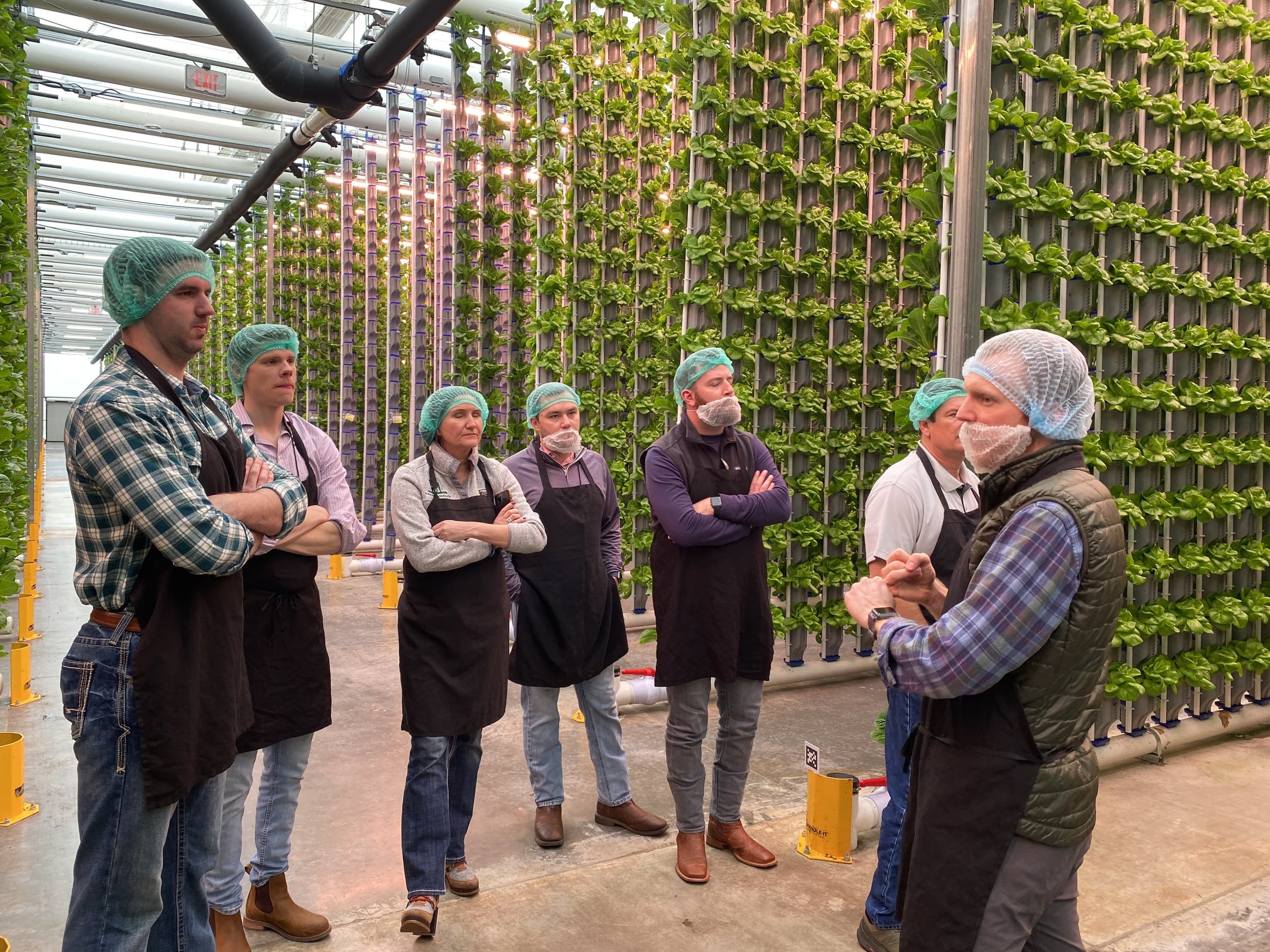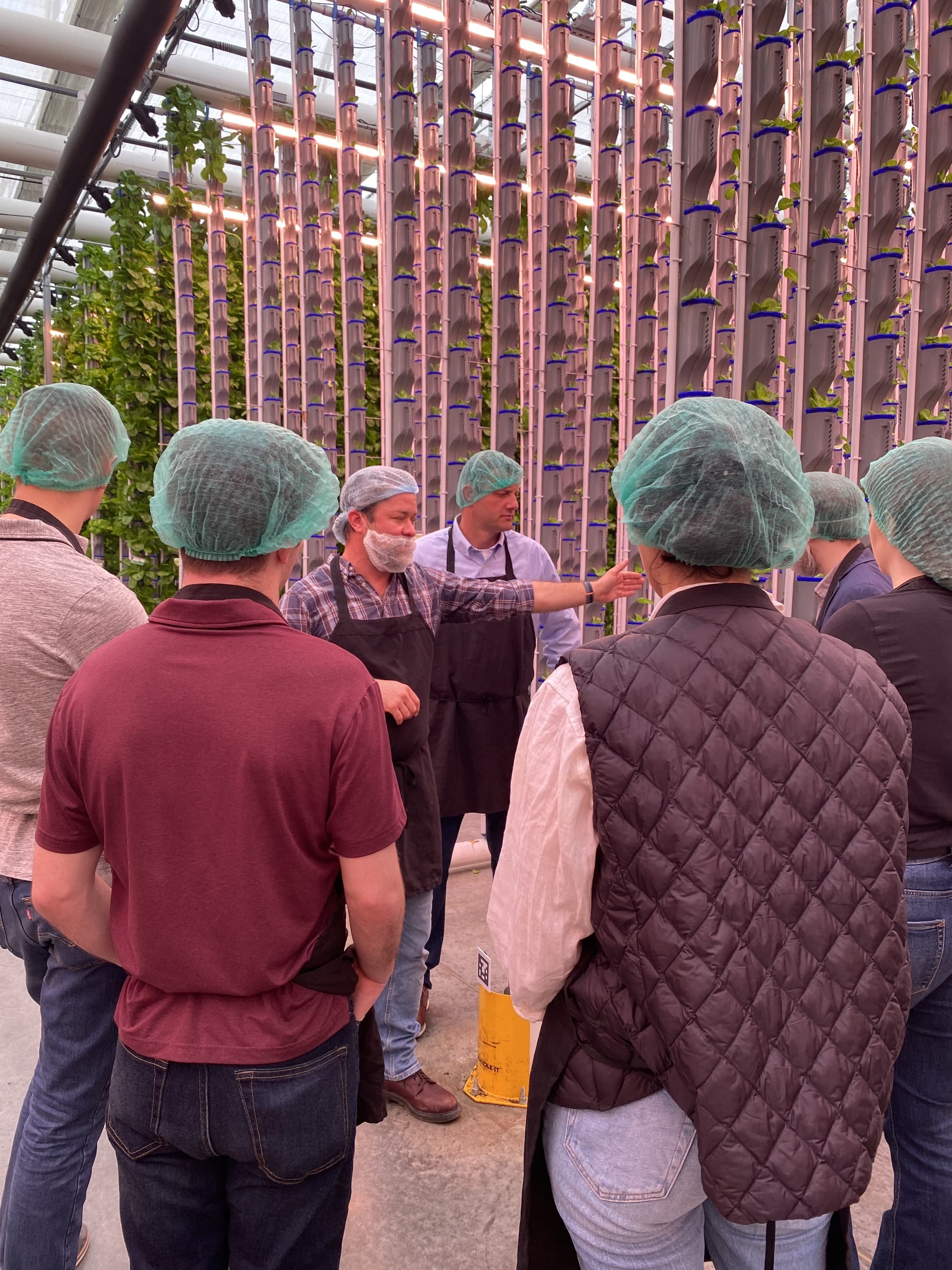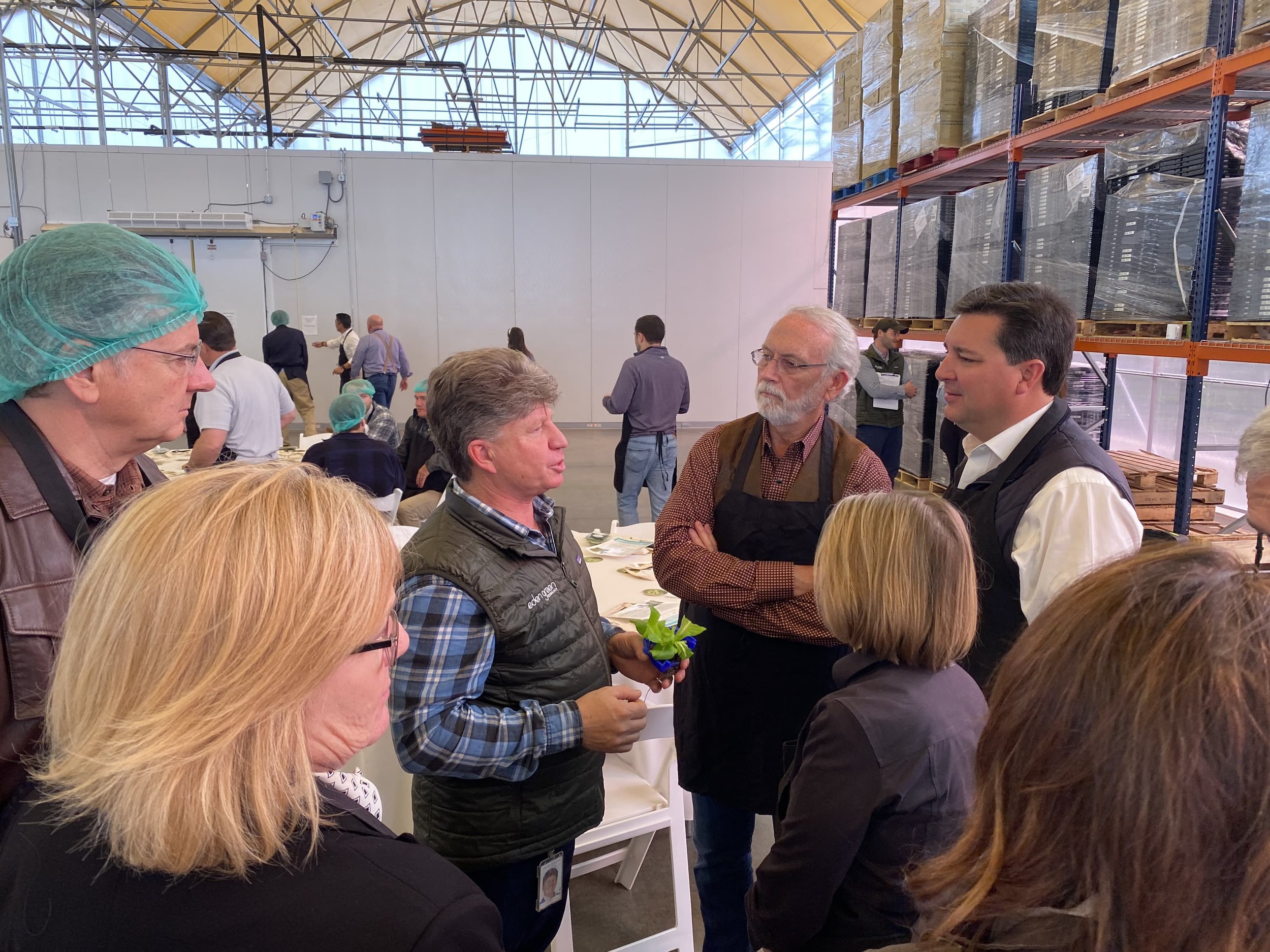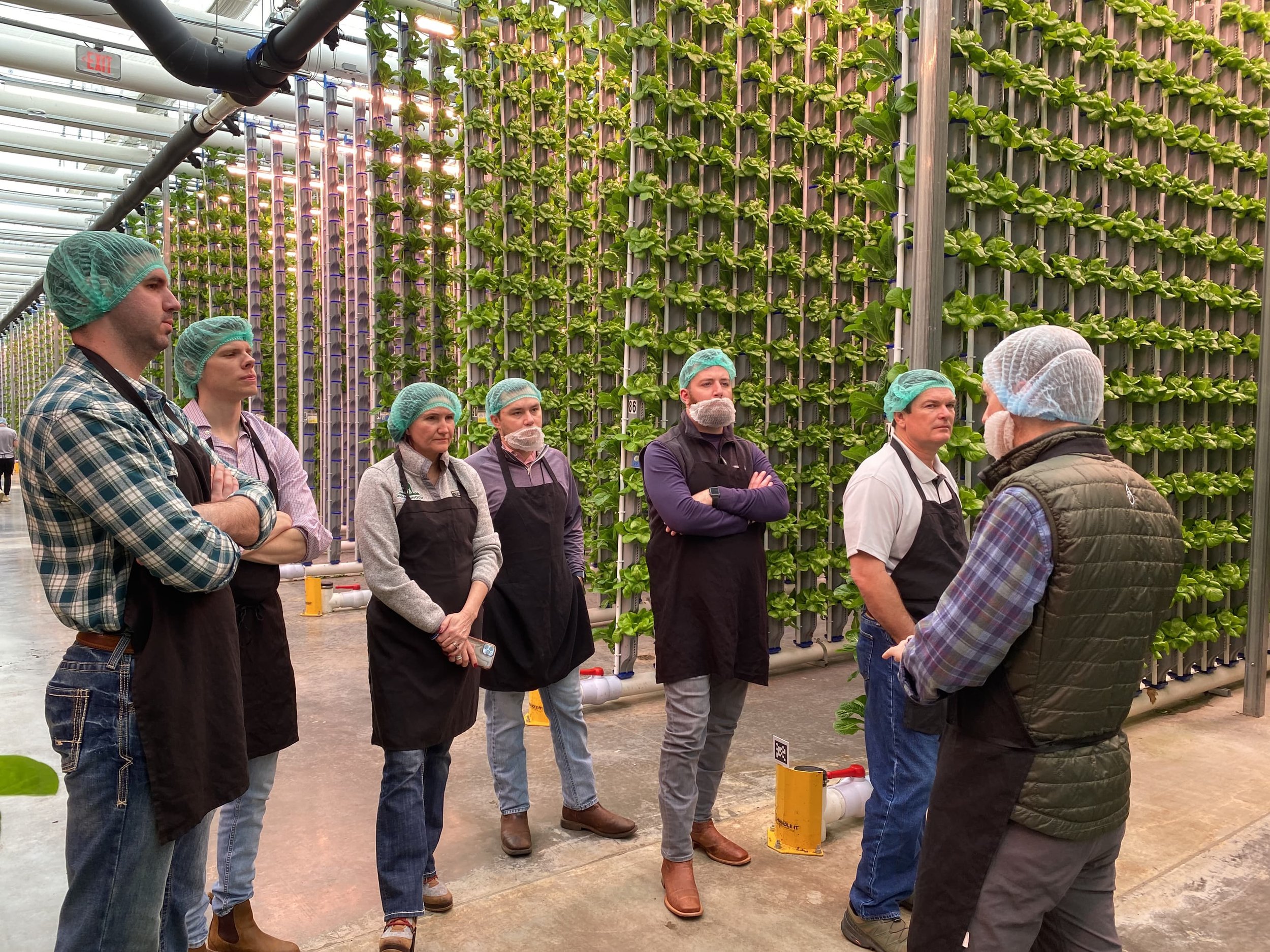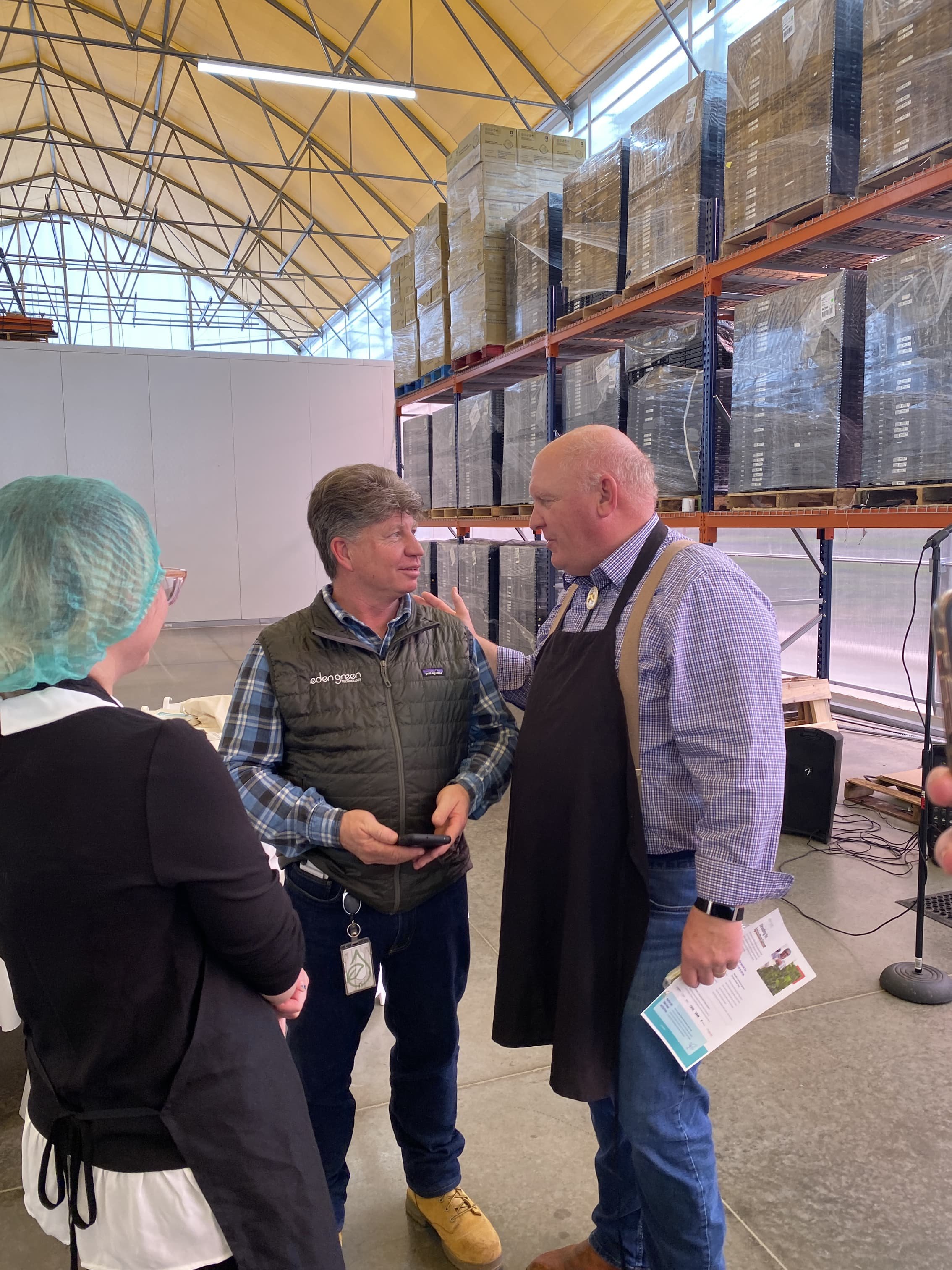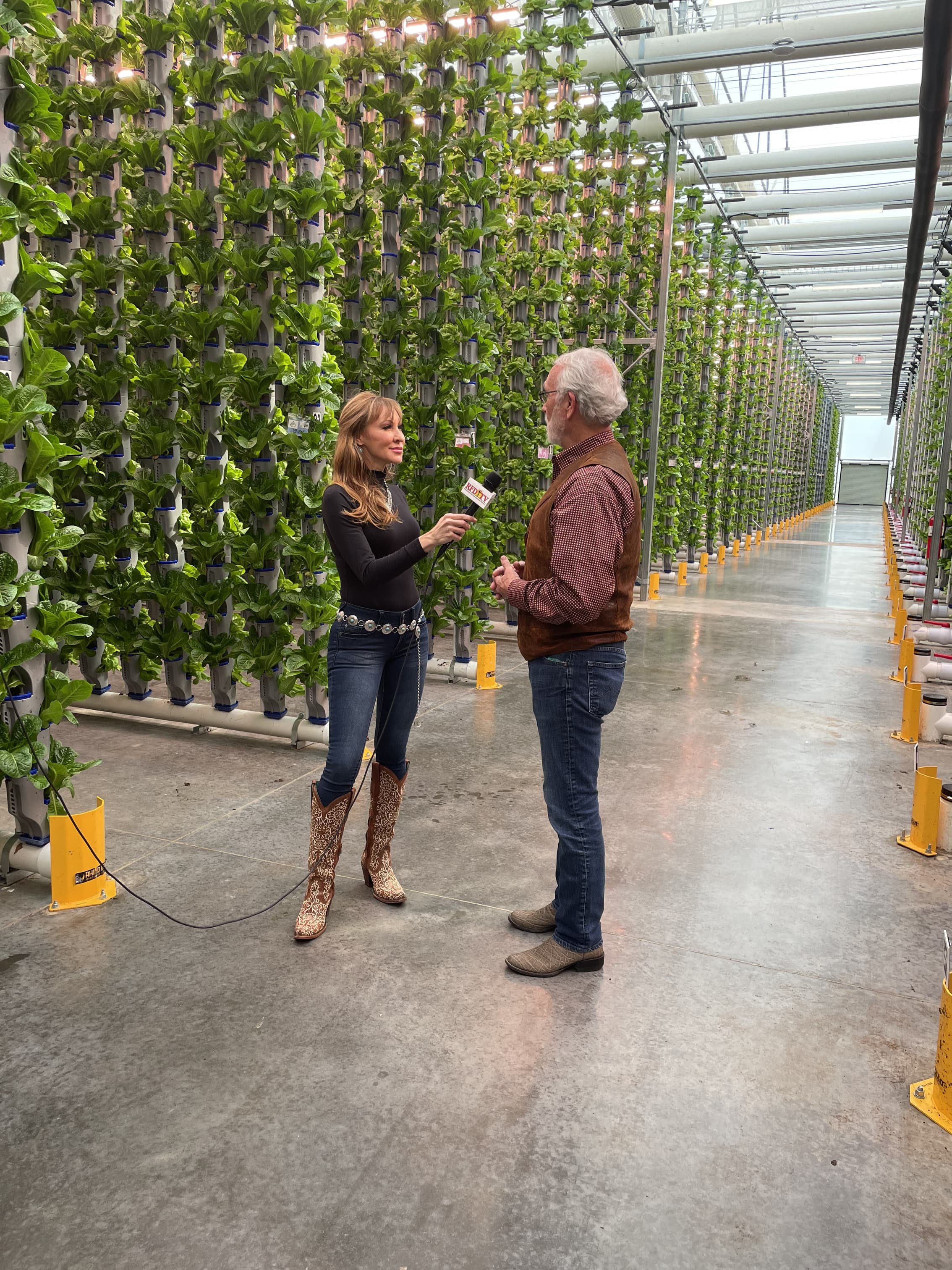The Western Caucus Visits Eden Green [Photo Gallery]
Scroll down for the full photo gallery.
Western caucus members wearing PPE on a tour at Eden Green.
The Western Caucus Foundation and key members of the Congressional Western Caucus recently visited Eden Green, and it was an eye-opening experience for all. This visit from the members of the U.S. House of Representatives and their team highlights the importance of exploring new agricultural techniques that can help us address US food security challenges and reduce our environmental impact now and in the future.
Who is the WCF and why are they important?
The Western Caucus Foundation (WCF) is a non-profit organization that educates law and policy makers about the cultural and policy issues unique to the American West. The Foundation provides a much needed cultural exchange, bringing people together to gain a mutual understanding and appreciation for the challenges facing the western states.
While a separate organization from the Senate and Congressional Western Caucuses, the Foundation works with similar goals as the Caucuses to inform and educate policy makers and the public on ‘Western’ ideals – including individual and private property rights, a strong state and local government influence over federal bureaucrats, optimistic self-reliance, utilization of our abundant natural resources, and boundless economic growth and opportunities.
Why They Visited Eden Green
Educating the law and policy makers is a pivotal part of the agriculture industry’s growth. Our vertical greenhouses are an innovative and sustainable approach to agriculture, but many are still unfamiliar with this technology and how we help feed people. Educating these decision-makers about vertical greenhouses is crucial to promoting their use and expanding access to sustainable food production.
Here are few ways policymakers can impact vertical farming and controlled environmental agriculture (CEA) in 2023 and beyond.
Zoning Laws
One of the key benefits of vertical greenhouses is their ability to produce high crop yields using significantly less land and water than traditional farming methods. This can be particularly beneficial in urban areas where space is limited and water resources are scarce. However, zoning laws and regulations related to agricultural land use may need to be adapted to allow for the implementation of vertical greenhouses in urban environments.
Economic Benefits
Policy makers must also be made aware of the potential economic benefits of vertical greenhouses. This technology can provide local jobs and stimulate the economy through the production of fresh, locally grown produce. By supporting the development of vertical greenhouse technology, policy makers can help create new opportunities for entrepreneurs and small businesses in the agriculture sector.
Food Insecurity
Policy makers must understand the role that vertical greenhouses can play in addressing food insecurity. With vertical greenhouses, communities can produce fresh, healthy food year-round, regardless of climate or seasonal changes. This can be especially important for communities that lack access to fresh produce or face challenges in transporting food from distant sources.
It is exciting to see the Western Caucus Foundation at Eden Green, taking an interest in innovative solutions for a sustainable future. Overall, education and awareness among law and policy makers is essential to expanding the use of vertical greenhouses, controlled environment agriculture (CEA), and promoting sustainable agriculture. By investing in this technology, we can help create a more sustainable and resilient food system for future generations.
Check out our event photos here!

